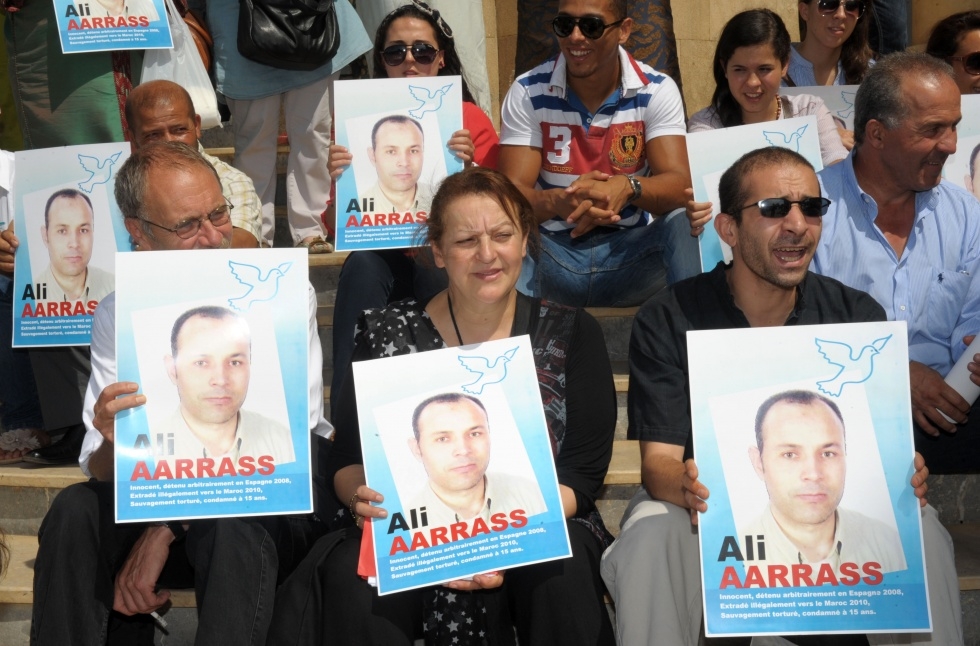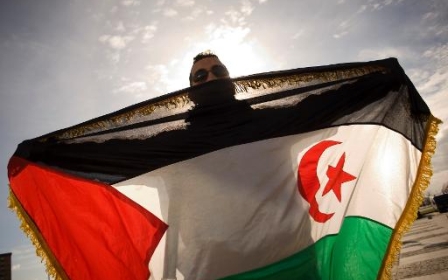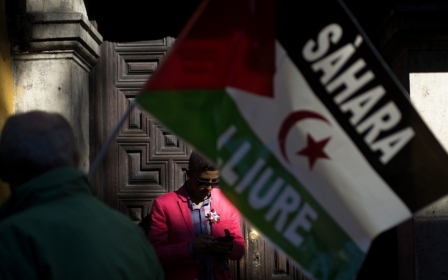Amnesty urges Morocco to end 'total impunity' for torture

Amnesty International on Tuesday said perpetrators of torture enjoy almost "total impunity" in Morocco and Western Sahara, while acknowledging that it had become less frequent in the country.
The allegations are part of a global anti-torture campaign launched this week by the London-based rights group.
Amnesty singled out five countries where torture is considered a particular problem and where it believes its campaign can have the most impact, with the others being Nigeria, Mexico, the Philippines and Uzbekistan.
The group said that, despite being explicitly criminalised since 2006 and prohibited by the new 2011 constitution, torture continues in Morocco, with perpetrators enjoying "virtual total impunity" and judges rarely investigating reports of torture.
"The resulting climate of impunity cancels out the dissuasive power of Morocco's anti-torture legislation," Amnesty said.
New MEE newsletter: Jerusalem Dispatch
Sign up to get the latest insights and analysis on Israel-Palestine, alongside Turkey Unpacked and other MEE newsletters
The government rejected the charges, insisting that judicial procedures had been strengthened, that the justice ministry was ready to investigate any claims of torture and that new reforms were planned that would see police interrogations recorded.
"Morocco has adopted a voluntary and systematic policy aiming to promote and protect human rights in all regions of the kingdom without distinction," government spokesman Mustapha Khalfi said.
Amnesty highlighted key steps Morocco has taken to confront concerns about the ill-treatment of detainees by the security forces, notably setting up an Equity and Reconciliation Commission in 2003 to investigate atrocities committed under the late king Hassan II.
The government's decision in March to end the trial of civilians in military tribunals was also seen as strengthening the rule of law and progress towards halting convictions based on confessions obtained through torture.
But Amnesty cited three specific cases in which detainees signed "confessions" after being subjected to torture or other ill-treatment in police custody.
One was Ali Aarass, a Belgian-Moroccan extradited from Spain in 2010. He was jailed for 12 years on "terrorism" charges, despite documentation that he was repeatedly tortured and claims that his "confession" - the main evidence against him - was obtained through torture.
And in Western Sahara, one of six Sahrawis arrested during a pro-independence demonstration last year, claims he was threatened with rape and also forced to sign a "confession" that he was prevented from reading.
He and his co-defendants, who were bailed in October after five months in pre-trial detention, risk up to 10 years in prison, accused of violence against public officials and participating in an armed gathering.
Amnesty called on Morocco to "end the climate of impunity" by prosecuting all those against whom there is sufficient evidence.
It also urged the authorities not to use confessions obtained through torture in any proceedings, to end secret detentions and to ensure that detainees have access to a lawyer, notably during interrogation.
Governments betray commitment against torture
Amnesty has accused governments around the world of betraying their commitment on stopping torture.
In a briefing entitled ‘Stop Torture’, the human-rights organisation launched its latest global campaign to combat what it says is widespread torture and other ill-treatment in the modern world, even though it has been 30 years since the Convention Against Torture was adopted by the UN.
Since 1984, 155 states have ratified the UN Convention Against Torture, 142 of which are researched by Amnesty International. In 2014, Amnesty International says that 79 of these are still torturing people. A further 40 UN states haven’t adopted the Convention, although there is a global legal ban on torture making it incumbent on them to stop torture.
In the briefing, Amnesty highlighted a variety of torture techniques, from stress positions and sleep deprivation to electrocution of the genitals and water boarding, used against criminal suspects, security suspects, dissenting voices, political rivals and others.
As part of the campaign Amnesty commissioned a survey to gauge worldwide attitudes to torture. The survey found 44 percent of respondents, from 21 countries across every continent, feared they would be at risk of torture if taken into custody in their country.
The majority, 82 percent, believed there should be clear laws against torture. However, 36 percent still thought torture could be justified in certain circumstances.
Salil Shetty, Amnesty International’s Secretary General said, “Governments around the world are two-faced on torture - prohibiting it in law, but facilitating it in practice.”
“Torture is not just alive and well - it is flourishing in many parts of the world. As more governments seek to justify torture in the name of national security, the steady progress made in this field over the last thirty years is being eroded,” she said.
“Thirty years ago Amnesty led the campaign for a worldwide commitment to combat torture resulting in the UN’s Convention Against Torture. Much progress has been made since, but it is disheartening that today we still need a worldwide campaign to ensure that those promises are fulfilled,” said added.
Middle East Eye delivers independent and unrivalled coverage and analysis of the Middle East, North Africa and beyond. To learn more about republishing this content and the associated fees, please fill out this form. More about MEE can be found here.



